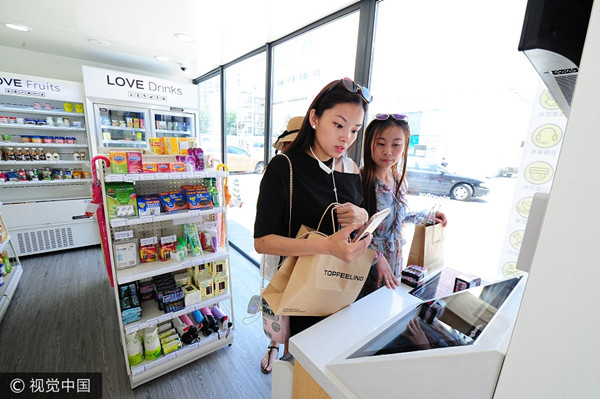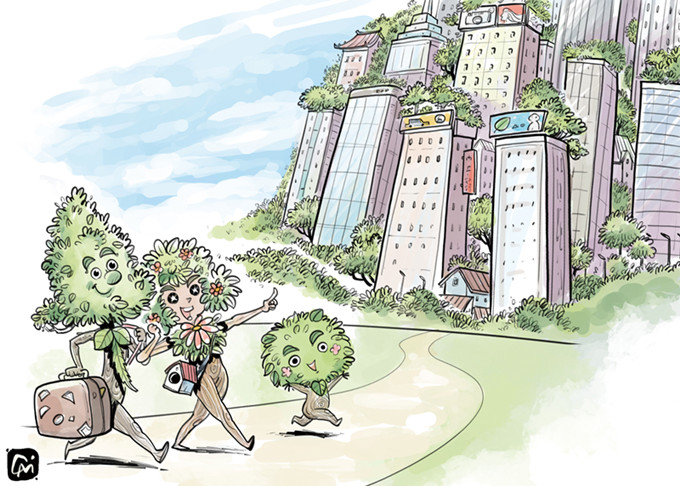Rules help to lift residents to virtuous heights
 |
|
One shopper checks out with her mobile phone at a convenience store in Shanghai, June 17, 2017.[Photo/VCG] |
The supermarket introduced the service about six months ago, and although more than 1.3 million payments have been made through the system, not a single customer has been caught trying to avoid payment.
Many say the success of the self-payment service reflects the high moral standards of the local residents. But the chaos that shared bicycles have created tells another story: people park them at will, some lock them with their own locks to ensure only they use them, while others carry them home. It is difficult to believe the same residents behave so differently at the self-help supermarkets.
A main reason why self-help supermarkets have achieved success is the anti-theft devices installed there. There are high-density cameras facing the self-help checkouts, while the special detection panels at the exits will expose anybody carrying goods without paying for them. This is not to say people are evil by instinct. But necessary measures should be taken to help people cultivate respect for the rules, and technology could render that help.
About one month ago, a self-help supermarket opened in Hangzhou, East China's Zhejiang province, too, but it downed its shutters after a short trial. The Hangzhou supermarket and shared bicycles should teach us a lesson: never test people's moral standards-just set rules when introducing new things and take necessary protective measures, and people will follow them.
Which means people will exhibit high moral standards, especially if they are made to follow certain rules. And the technologies that can make them follow those rules are already mature enough to be used in public places.



















